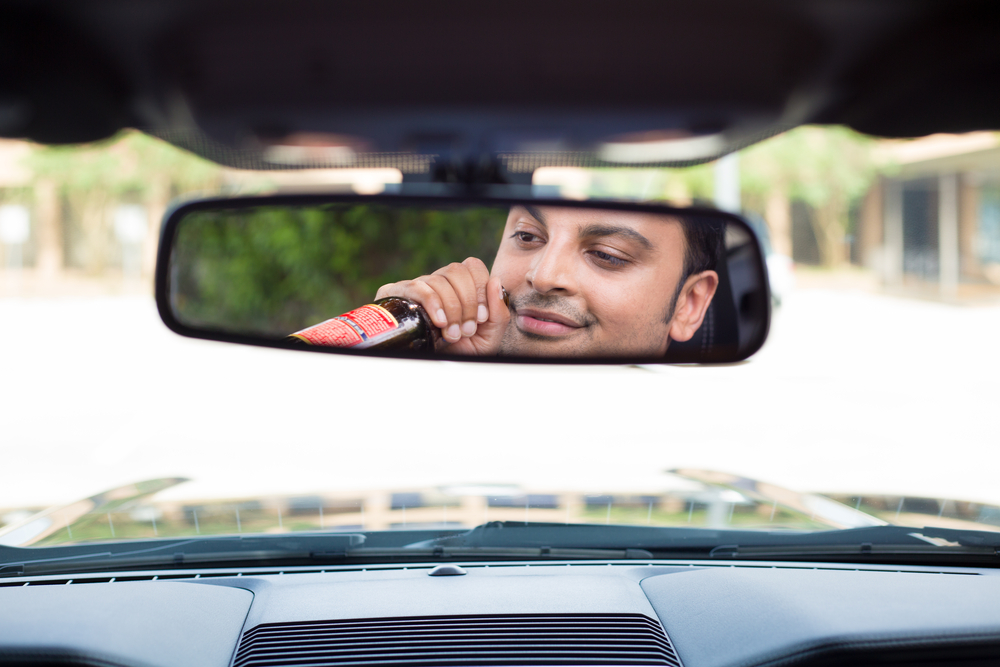Although uncommon, you can be charged with a DUI as a passenger. While it is rare for the police to issue a passenger a DUI citation in Pennsylvania, the penalties for this crime can be as harsh as if you were behind the wheel. This means you may face expensive monetary fines, probation or jail time, and the suspension of your driver’s license.
Upon conviction for DUI in Pennsylvania, you will have a permanent criminal record that will potentially interfere with your career prospects, your ability to rent a car, or your chances of renting an apartment.
When Can a Passenger Face DUI Charges?
State law defines DUI as driving, operating, or being in actual control of a motor vehicle after consuming a sufficient quantity of drugs or alcohol, such that the individual cannot safely do so.
By nature of the statutory definition, a passenger cannot technically have control of a motor vehicle. However, the police can charge the person sitting in the passenger seat under a variety of conditions. These are some possible scenarios that could lead to passenger DUI charges for a passenger.
You Switched Seats with a Sober Passenger.
If, while driving drunk, you see a police officer approaching, you may think it wise to pull over and quickly switch places with your sober passenger. Unfortunately, this tactic rarely works.
If your blood alcohol concentration (BAC) tests above the statutory limit—or if you refuse to undergo a breath test—you will likely face DUI charges as a passenger.
You Allowed an Intoxicated Person to Drive.
The legal concept of reckless endangerment offers another opportunity for an officer to charge a passenger with a serious crime. If you allow an intoxicated individual to operate a vehicle in which you are a passenger—and if you are sober and capable of driving—you have likely committed reckless endangerment.
What are some reasons why a police officer might let me off the hook if I’m a passenger and the driver is drunk
- Not having your glasses;
- Not knowing how to drive;
- Having restrictions on your driver’s license; or
- Not having a valid driver’s license.
However, if you do not have a good reason, you may face reckless endangerment charges. If you are intoxicated yourself and allowed an intoxicated person to drive your vehicle, you may face a host of other serious charges, as well.
You Interfered With the Vehicle’s Operation.
In Pennsylvania, case law establishes precedent for charging an intoxicated passenger with DUI if they interfere with the operation of a moving vehicle.
In 2014, an intoxicated passenger engaged in a dispute with the driver of the car in which she rode. The drunk passenger grabbed the steering wheel from the driver’s hands and twisted it violently, causing the car to exit its lane and collide with an oncoming vehicle head-on.
The oncoming vehicle so happened to be a state trooper’s cruiser with two officers onboard. Both state troopers, the intoxicated passenger, and the car’s driver sustained serious injuries.
At the time of the accident, the woman’s BAC exceeded the legal limit of 0.08 percent. Since she grabbed the wheel and caused the vehicle to divert from its lane, the police cited her for DUI. After the prosecution finished filing charges, she faced 25 to 30 years in prison for a host of charges, including vehicular assault while DUI, reckless endangerment, and reckless driving.
Ultimately, the woman pled guilty to lesser charges and spent less than one year in jail.
What Other DUI-Related Charges Might a Passenger Face?
If you have an open container of alcohol in the car, an officer can cite you under the state’s open container law. Or, if the police discover an under-21 intoxicated driver behind the wheel, they can potentially cite you for furnishing alcohol to a minor. If any injuries or damage occurred as a result of your incident, you could face enhanced charges related to those events.
Depending on the circumstances of the incident, you may face a variety of charges, all of which carry significant penalties.
The McKenzie Law Firm, P.C., Can Help You Fight Your Charges.
The best way to identify and mitigate your risk for facing DUI as a passenger is to speak to a lawyer as soon as possible. Attorney David C. McKenzie III of the McKenzie Law Firm, P.C., can protect your legal rights and analyze the prosecution’s evidence against you to build a strong case for your defense.
After a thorough investigation of your case, we can potentially negotiate with the prosecutor for a reduction or dismissal of the charges. If necessary, we can build a case to defend you in court. Ultimately, having us on your side will ensure the best possible outcome in your case.
We provide aggressive representation for DUI clients. We offer free consultations and case reviews to help answer your questions and outline your options. Contact the McKenzie Law Firm, P.C., today at 610-680-7842 to speak with a Pennsylvania DUI attorney.




